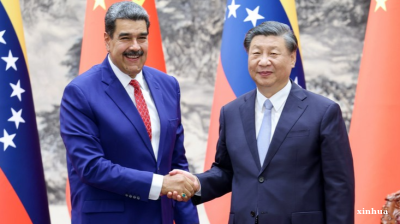Kazakhstan awards Russia, China one nuclear plant project each, Uzbekistan revises its plan to include large facility

Kazakhstan has avoided the difficulty of disappointing either Moscow or Beijing in its choice of nuclear power plant (NPP) main contractor by awarding Russia and China one plant each.
This has been made possible by Kazakh President Kassym-Jomart Tokayev’s determination that his country will need two or more NPPs in coming years in order to meet its energy demand on a low-to-no emissions basis.
Neighbouring Uzbekistan, meanwhile, has reportedly reformatted its plans to move into nuclear power production by adding a large NPP to the small plant that Russia’s state nuclear corporation Rosatom has already agreed to build. The revised plan was reported by Russian media outlets TASS and Interfax, with reference to the Russian Ministry of Economic Development.
In Kazakhstan, Rosatom and China National Nuclear Corporation (CNNC) have been selected to lead separate NPP construction consortiums, the lately established Kazakh atomic energy agency announced on June 14.
Kazakhstan aims to commission 2.4 gigawatts of nuclear capacity by 2035.
The Kazakh atomic energy agency said Rosatom’s proposal was “the most optimal and advantageous” for the first NPP, while China would lead construction works on the second. The agency noted that discussions had begun on attracting Russian state export financing for the project.
Rosatom CEO Alexei Likhachev stated that Kazakhstan's first plant would feature two VVER-1200 Generation 3+ reactors, a technology already deployed in Russia and other countries. The facility will be built in the village of Ulken, about 400 kilometres (249 miles) northwest of Almaty.
Further details on the cost, timeline and additional consortium participants were not disclosed.
French and South Korean companies also submitted bids for the projects.
Kazakhstan, a major uranium producer, has been without any nuclear power since 1999, when the Soviet-era BN-350 reactor on the Caspian Sea was shut down. For energy, the country currently largely relies on coal-fired power plants, with additional supply from hydroelectric and renewable sources.
A nationwide referendum in Kazakhstan in October 2023, called by President Kassym-Jomart Tokayev, supported the development of nuclear power.
Large and small
In Uzbekistan, the changed NPP plans will mean the construction of a two-unit large plant and a two-unit small nuclear plant, with the latter based on small modular reactor (SMR) technology, according to the Russian media reports.
Rosatom and Uzbekistan’s Uzatom were yet to comment on the reported project revision. However, Uzbek officials have previously emphasised the country's need for large nuclear reactors.
In October last year, Energy Minister Jurabek Mirzamakhmudov noted that the project would start with small reactors but stressed the requirement for large reactors to support Uzbekistan’s goal of 40%-renewable energy by 2030. The question as to whether nuclear power is renewable is a controversial one, given that uranium supply is not infinite, but NPPs fall into the zero-emissions category of power so can be seen as important in the fight against global heating.
Uzatom director Azim Akhmedkhadzhaev, in an interview with YouTube channel Alter Ego, stated that Uzbekistan needs four large NPPs to meet forecast rising electricity demand, pointing to growing consumption trends.
In March, Uzatom and Rosatom held technical discussions on the location, design and long-term goals for a high-capacity facility intended to support Uzbekistan’s energy security and infrastructure sustainability.
In May 2024, Uzatom and Rosatom signed a contract to build a low-power nuclear power plant in Uzbekistan using six Russian "mini nuke" RITM-200N water-cooled reactors, adapted from shipboard technology.
The reactor has a thermal capacity of 190 MW, generates 55 MW of electricity and has a service life of up to 60 years.
Uzbek President Shavkat Mirziyoyev has called the SMR project “vital” to Uzbekistan’s economic development, highlighting the country’s uranium resources, currently exported rather than used domestically.
The larger plant, like the SMR plant planned for Jizzakh region, has been under discussion for six years, with a projected construction timeline of six years from approval.
bneGREEN

China has no clear coal exit strategy as new projects hit decade high
China is failing to set out a coherent plan to phase out coal despite record growth in renewable energy and the approach of key climate deadlines, according to new research released on August 25.

China’s new mega-dam project threatens water war with India
China’s decision to construct the world’s largest hydropower dam on the Yarlung Zangbo river in Tibet has intensified fears in New Delhi of a looming water crisis, with Indian officials warning the project could reduce dry-season flows into India

New expedition finds Azerbaijan’s Tufandag glacier continues to shrink
Glaciers are among the clearest indicators of global climate change with any warming or cooling quickly reflected in changes to their surface area.

US EPA’s controversial Climate Crisis report is full of lies and mistakes
The US Environmental Protection Agency (EPA) released a controversial report in July claiming the effects of the Climate Crisis were overblown. A fact check by Carbon Brief found it is full of lies and errors.


_1756222537.jpg)